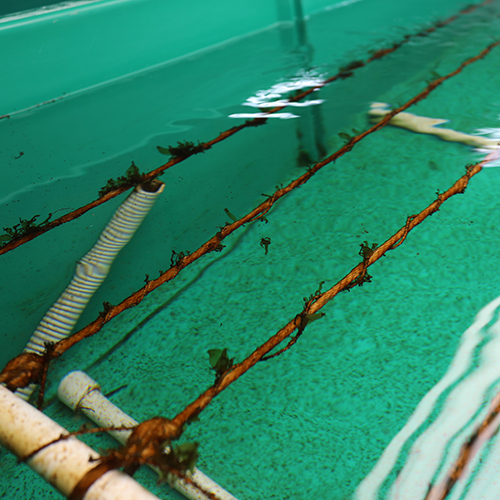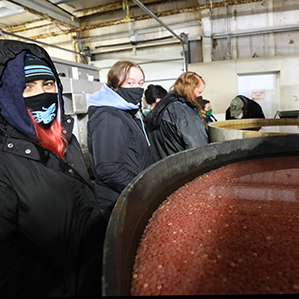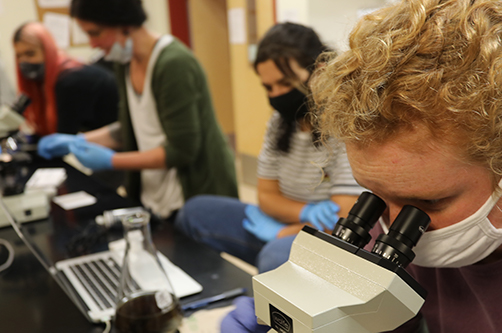Academics
Upcoming Courses
Fall Semester 2022 Class Schedule
Browse and register for courses in Fisheries or Oceanography on our website.
Lectures and readings
Browse our open-access Fisheries courses.
Semester intensive programs
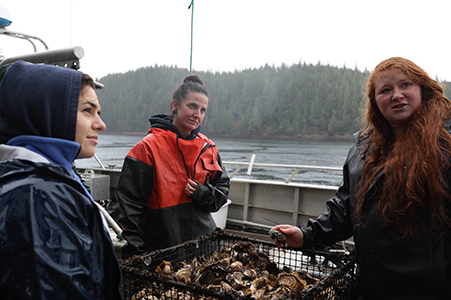
Alaskan Aquaculture Semester
Join our Alaskan Aquaculture Semester for an immersion into Alaskan seaweed and shellfish mariculture as well as a comprehensive education in Alaska salmon enhancement hatchery operations. Over the course of the semester, you will learn everything from Alaskan salmon hatchery techniques and skills, develop a vast knowledge of the science and history behind our salmon hatchery programs, and learn nursery, outplanting and rearing techniques in mariculture. Additionally, you will develop skills in basic skiff handling and small engine maintenance techniques, coldwater safety and survival, bear and wilderness safety and first aid. Our course offerings are designed to complement your studies at your current college or university.
Hands-On Learning - Applied Internships - Skiff, Outboard Motor Operation - Interdisciplinary Study - in Sitka Sound
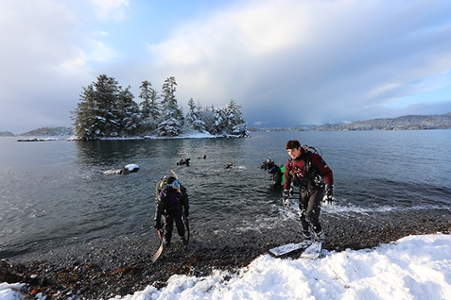
Alaska Dive Semester
You will have the opportunity to work with UAS faculty and become accomplished research divers. Over the semester, you will learn everything from basic dive skills, to underwater rescue procedures, to underwater data collection techniques and you will become familiar with local fish and invertebrate species, and participate in new and ongoing marine-related research projects. Additionally, you will develop skills in basic skiff handling and small engine maintenance techniques, critical to underwater field work.
Earn certifications as Open Water Divers, Dry Suit Divers, Advanced Open Water Divers, Research Divers, AAUS Scientific Divers, and DAN 1st Aid/ CPR and O2 Providers along with gaining experience in cold-water research and fieldwork*.
* Scuba Educators International (SEI), American Academy of Underwater Sciences (AAUS), Divers Alert Network (DAN)
Hands-On Learning - Develop Scientific Diving Skills - Learn Small Boat Handling - Interdisciplinary Study - in Sitka Sound
Choose from these tracks, or chart your own course.
Associate of Applied Science
The Associate of Applied Science (A.A.S.) degree in Fisheries Technology at the University of Alaska Southeast, Sitka Campus provides a broad educational and practical foundation in the field. Students completing the A.A.S. degree will be prepared to go on to pursue a four-year degree program with the UAF School of Fisheries and Ocean Sciences, or for entry-level employment in federal and state agencies, hatcheries, as well as positions in the private sector. Online courses are available, offering maximum flexibility for students.
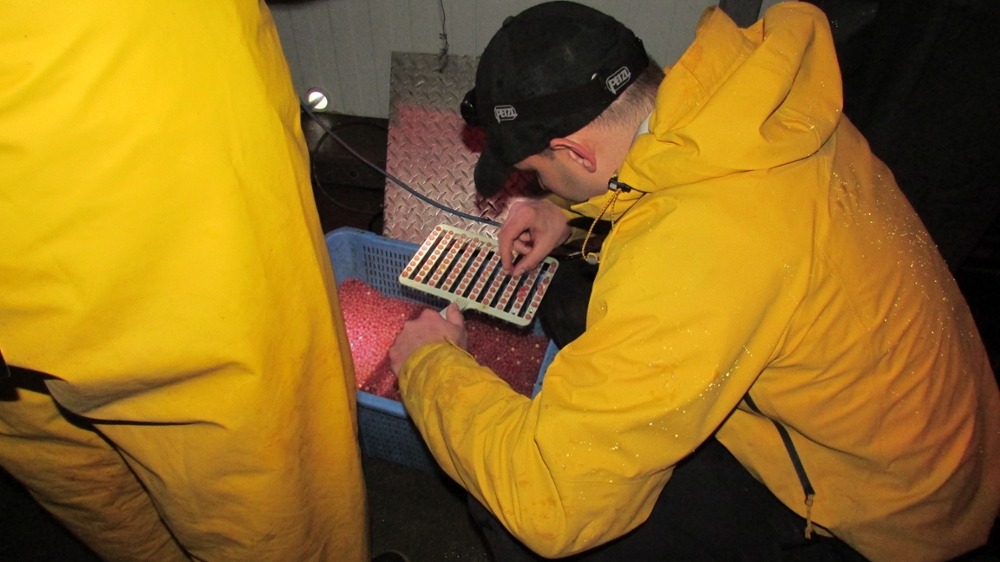
Fisheries Tech Certificate
Equips students considering careers in fisheries technology with practical skills and knowledge in 32 hours of coursework. The program offers two different areas of emphasis:
- Alaska Salmon Enhancement - introduces students to the principles, concepts and methods utilized in the production of Pacific Salmon with an emphasis on modern fish culture techniques use by Alaskan producers.
- Fisheries Management - introduces students to common sampling and monitoring techniques and parameters implemented by fish technicians in southeast Alaska including the management, law and economics of fisheries.
Students can choose to complete one or both certificates with either emphasis. Both require three credit hours of internship.
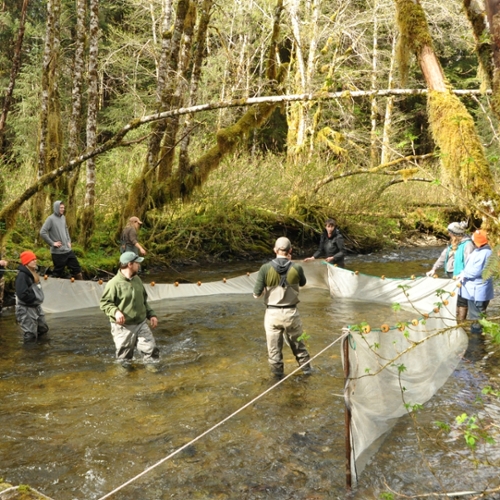
Occupational Endorsements
Our Occupational Endorsement program provides practical job-ready skills and knowledge in a reduced time commitment of just 14 credit hours! (Just four web-based courses plus a hands-on intensive lab or internship!)
The program offers two different areas of emphasis:
- Alaska Salmon Enhancement – provides training for individuals interested in Pacific salmon culture practices. Courses introduce the fundamentals of fisheries enhancement in Alaska, basic fisheries biology, and related field techniques essential for working in hatchery or other salmon enhancement positions.
- Fisheries Management – provides training for individuals interested in fisheries management. Courses introduce international and local fisheries management policy and law, fisheries economics, fish biology, and related field techniques as a working foundation for entry-level state or federal fisheries management positions.
Students can choose to complete the occupational endorsement with either emphasis. Both require either a 50-hour internship or a four-day intensive field/lab class.
This occupational endorsement online course work integrates with the Certificate and A.A.S. programs.
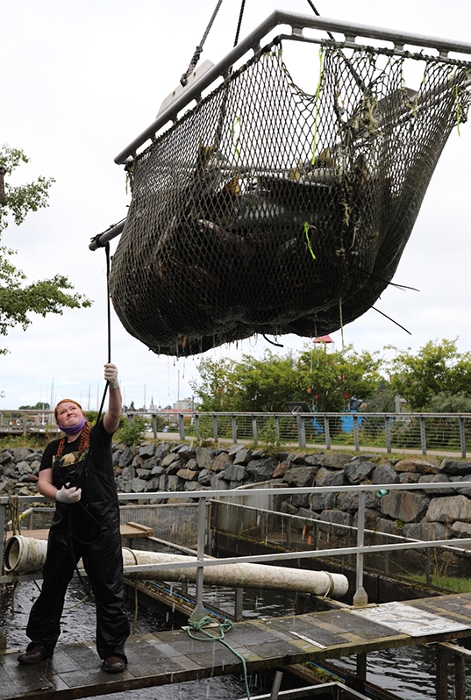
Course descriptions
Explores the biology, fisheries, management, and research of various Alaskan fisheries throughout the state. Each week students will focus on a different portion of the state to learn about a different fishery. Guest lecturers will emphasize the importance of research and current issues in their respective regions. Recommended for students looking to better understand how Alaska fisheries are unique.
Students will learn the basic skills to be an Open Water and Dry Suit SCUBA diver. Consists of instruction in classroom, pool, and ocean settings and covers diving theory with respect to physics, physiology, and safe diving practices. Students that complete this course will be certified with the Professional Association of Dive Instructors (PADI) as an Open Water Diver and a Dry Suit Diver specialty. Students must complete a 200 yards swim and survival float for 10 minutes.
Prerequisite: FT S274 or concurrent enrollment, or former FT S273.
Prerequisite: FT S211 or concurrent enrollment, or instructor approval.
Prerequisite: FT S122.
Prerequisite: MATH S105 or MATH S151 or STAT S107, and WRTG S111, and FT S120.
Prerequisite: FT S120.
Prerequisite: FT S120 or concurrent enrollment, or instructor approval.
Work in an approved fisheries agency or natural resource based industry with a fisheries emphasis. The student is to be supervised by a senior employee of the agency in cooperation with the faculty advisor.

